
Nic: “The little things that were happening in my life… trying, unsuccessfully, to shag as many girls as possible!” Pic: Ray Tarantino
The Australian singer-songwriter and frontman talks about the rock band’s rise, fall and rebirth in 15 years since ‘Get Born’
Hailing from Melbourne, Australia, the rock band Jet found international popularity during the early 2000s. Fronted by Nic Cester with his brother Chris on drums, Cameron Muncey on guitar and Mark Wilson on bass, the foursome self-released 2002’s Dirty Sweet EP before signing a deal with Elektra and releasing their debut album, Get Born, in 2003. Launched by the worldwide radio play of its lead single Are You Gonna Be My Girl, the album went on to sell over three million copies and earned six ARIA (Australian Record Industry Association) awards.
After years of incessant touring, their sophomore LP Shine On arrived in 2006 to a mixed response, and their third album, Shaka Rock, landed in 2009, but the band would go on hiatus a year later and fully disband in 2012.
With Jet reuniting to tour in celebration of 15 years since the release of Get Born, and Nic also releasing his solo album Sugar Rush, we took the opportunity to chat with the embattled frontman. It’s been a rocky ride…
Tell us about the birth of Get Born.
“We’ve been celebrating the anniversary of that album, so it’s been something I’ve been thinking about quite a bit lately. We were young, and that’s the first thing that struck me when I’ve been revisiting all the stuff lately. Get Born especially, a lot of those songs were written over a period of quite a few years and with songs like Are You Gonna Be My Girl and Look What You’ve Done, I was between the ages of 17 and 19 when I was writing most of that stuff. Obviously I didn’t know too much beyond the small town I was living in at the time, and the little things that were happening in my life, like my parents’ divorce and trying unsuccessfully to shag as many girls as possible! All of the usual stuff, I guess. The thing that really stands out when I look back at that time is how young I was.”
What would’ve been going through your mind at that age, musically.
“My knowledge of music at that time was very limited. I wasn’t from a big musical family. I grew up listening to all the classics, which is obviously what that album sounds like. So I was making my first attempts at a bigger world through music, and making it up as I went along, and always trying to learn as much as possible, as quickly as possible.”

Nic Cester [right] with Jet: “We’d meet up three or four nights-a-week and write, write, write…” Pic: Tom Sheehan
What was the context of that album because you’d released the EP by then?
“We’d made a decision early on, because we knew we were too young to get gigs – we weren’t even 18 years old then. We still tried anyway, but we just kept getting shut down everywhere we went. So we thought, ‘Okay, since we can’t do shows, then let’s just concentrate on what we can do,’ and we got really serious about rehearsing. We’d meet up three or four nights-a-week and write, write, write… In doing that we were able to turn a negative into a positive, and we locked ourselves away and developed our songwriting skills behind closed doors before we were really exposed to the world.
So were you weren’t just playing covers?
“We were kind of doing both at the same time. When we were 15 or 16 we were playing covers – not so much grunge, which was very much what was happening at the time. We were more into The Band and an Australian band called You Am I, and a band called Sloan from Canada, which were a huge influence.”
When you were writing, was it just coming out of jam sessions as a band, or were you bringing songs to the guys?
“I tended to be the only one in the group who’d come with finished songs. I mean, the Get Born album was maybe 75 percent me. Chris [Cester] was very much starting out playing guitar, but he and Cameron [Muncey] would team up and come to the group with bits and pieces, or an idea for a chorus, or a riff, and then we’d stitch it all together.”
I wondered whether being brothers helped in that situation, or made a difference?
“Not really because the power dynamic sort of shifted over the years. At that early stage it was all about me and Cam, and Chris was the little brother – we’d only recently invited him to be part of our band, so Chris played a much smaller role back then. There was no rivalry; we didn’t what a monster we were creating at the time!”
What was the breakthrough moment when everything got serious and you took off?
“We’d been writing songs for a long time and we finally had a good, solid body of material. All of a sudden we’re 18 or 19 years old and playing shows in the city of Melbourne had become a real possibility. And right at that time, the whole rock ’n’ roll revival thing happened, so we were poised. We had this huge arsenal of material and we’d gotten pretty good behind closed doors, while no-one was watching. It all just happened very quickly. The whole album Get Born was finished, and we were playing every single song.”

Nic: “One of the hardest things is getting objectivity – when you’re looking at something from so close up.” Pic: Mark Wilkinson
Had you started recording demos of the album or were you just gigging?
“We had a basement where were constantly recording rough ideas, so it gave us the possibility to be objective about what we were doing, and look at from a different perspective, and be more analytical and critical. We could really see and hear what was working and what wasn’t, how the structures would flow from one part of the song and into the next. That’s something I’ve continued doing up until this day that I find very useful. One of the hardest things is getting objectivity – when you’re looking at something from so close up, it’s harder to see the bigger picture sometimes.”
When you went to LA to record Get Born, you were really tight and had the material ready to go. So was the recording process a formality?
“Again, we were still really young then, we were excited and pretty naïve, I guess. But we were cocky and very much a gang. We had a good relationship with Dave Sardy, who was the producer, but it was us against him, us against the label, us against the managers. Maybe we didn’t need to be so aggressive with our opinions, but it was a bit of a defense mechanism at the time, because we were pretty overwhelmed with the situation that we’d found ourselves in.
In hindsight, do you think your cockiness is what made that album sound so immediate and gave it a feeling of urgency?
“I’d say absolutely. That combined with the fact that we knew how to make parts jump. I mean, we were excited and we were able to capture that. We knew how to create exciting moments in a song where everything dipped away and something else stepped up and grabbed your attention, like a riff or a drumbeat. We worked hard on trying to capture the excitement we were feeling at the time. It was something we were conscious of and worked at.
“It was very real, what we were experiencing and how we were feeling, and when you’re in a gang, it’s transmitting that energy and so much contagion, and I think Dave Sardy caught our bug as well. All the people who worked with us ended up catching that same bug and I guess eventually even the fans did, so that’s how it spread.
It definitely comes across that you were really fired up and ready to take on the world.
“It’s fair to say Dave did an amazing job on that album; he knew exactly how to capture it.”
How did you approach making the second album, Shine On?
“It was different. Our worlds had changed dramatically, obviously, but there’s a darkness over that album because our dad passed away just before writing began. It was very sudden and he was very young, not quite 50, so that whole album is very much shaded by that.”

Nic [left] and Jet: “Things took off so quickly and it was so ferocious. We were on tour constantly.” Pic: Tom Sheehan
Was that something you were conscious of at the time, or is the darkness in the songwriting something obvious when you were able to look back?
“Even now when I write, nothing’s ever that thought out. It’s just a manifestation of your feelings and thoughts, and whatever’s going on. Obviously that was huge and I still feel the ripples of that tragedy, even to this day. So to be going through that at that time, with all the pressure and all that fame, and we were still very young.
Were you writing for Shine On while you were on the road?
“Oh no, absolutely not, we were too busy drinking to do any writing! It was a very difficult process, well I found it difficult, anyway. Also, at that time Chris was on a mission to have a big influence in the band’s writing and decision-making and everything, which was also difficult because it caused a big disruption in how things had been done previously. I’m not criticising him for that, by the way, it was his natural next step that had consequences on the structure at the time. So it was just one more big change that was going on at the same time as all the others.
“Things took off so quickly and it was so ferocious. We were on tour constantly; we didn’t stop. We were still all based in Australia then, but we were touring Europe and America, and you can’t just quickly pop back home! Looking back now, we’ve all spoken and we absolutely over-did the touring thing… I mean, we over-did everything! Even our managers, if was their first time too, so we were all making mistakes and all wanting to do as much as possible, but we were probably all guilty of trying to do too much. We should’ve just stepped back.”
Well, I suppose for a young rock ‘n’ roll band doing too much comes with the territory! So when did you find time to write that album?
“I don’t know! I think we finally stopped and we all went home, and I think I was the most effected by everything – I was the oldest, I started the band, I wrote the majority of the first album – so I think I felt the pressure more than the others, which allowed Chris and Cam to step up, actually, because they were poised to write without the pressure that I was feeling. So they really started pushing things forward, making things happen or organising rehearsals. I ended up writing quite a lot of songs, but it was more because those guys were sort of pushing me to, than any real desire that I had, to be honest.”
“I was in an absolutely different head space, so writing fun, short, sharp rock songs wasn’t… They weren’t coming out naturally. They were more cerebral and melancholic; that was where my head was at then.”

Nic Cester: “I needed to get as far away as possible, so I went to the Middle East for a while.” Pic: Ray Tarantino
Can you tell us what you were doing in the years after Shaka Rock?
“Well, Shaka Rock was a real low moment for me personally. I’d kind of made a decision after Shine On that things weren’t working and the relationships weren’t working anymore – the foundations the band were built on had been corrupted for a while. I just wasn’t inspired. But then Chris and Cam came to me and said, ‘Look, we can’t leave it like this.’ Actually Cam, at that moment, was the most inspired and that was something I hadn’t really seen in him before, so I thought, ‘Alright, maybe we should give this one last go.’ But my heart wasn’t it and I kind of regret going ahead with Shaka Rock now, to be honest. Although, listening back there are some really good songs on there.
“Anyway, I reluctantly went along for the ride on the third album and then after that I was just ‘completed’. Y’know things ended really badly; it was just a bad time for everyone. I needed to get as far away as possible, so I went to the Middle East for a while with my now wife and travelled around Jordan, Palestine, Israel and Turkey. Then I moved to Berlin to live and slowly started writing again.”
What year would that have been?
“As soon as the band split up, around eight years ago, I went and travelled around the Middle East for about six months. Then I did about two or three years just living in Melbourne wondering what the hell to do next! Then I relocated to Berlin and that’s when everything started to shift and I had a clean slate in a new country. I actually went back to school and started studying German, and at the same time I made my first tentative steps to writing music again. Not with any big expectations, to be honest, I did it more because I owed it myself – just to see. I think maybe because of that it ended up being a very pleasurable thing for me, and again because I didn’t have any ambitions to even write an album, what ended up coming out was some of the most interesting things that I’d ever written. I was mixing different genres together, just having fun and trying stuff, and pushing myself to see how far I could take some of these ideas. And that ended up being Sugar Rush, which is probably the body of work that I’m most proud of to this day.”
Do you have any plans to make any more new music with Jet?
“I don’t know, we’re just taking it slow. We hadn’t really even seen each other for about five or six years, so this tour for me was a chance to revisit my youth, I guess, and at the very least park this project in a better place, emotionally but also between us. It’s nice because the friendships are there again and it feels a lot closer to what it was in the beginning.”
Interview: Aaron Slater
Nic Cester’s solo album Sugar Rush is out now. Find out more at niccester.com


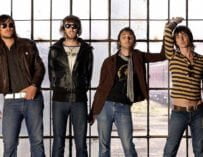
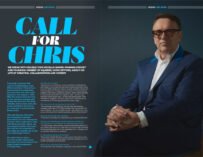
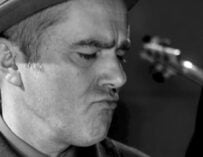



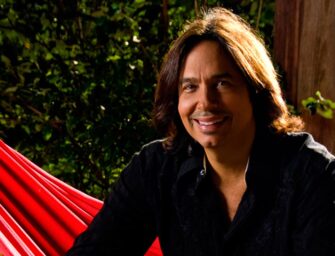
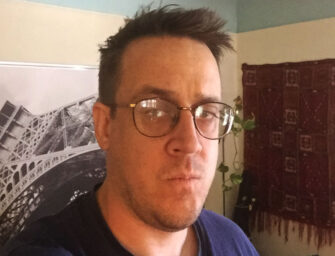

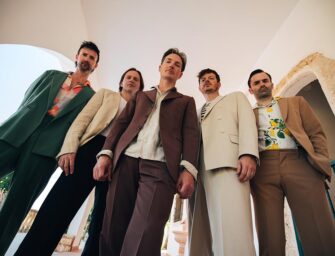























Related Articles